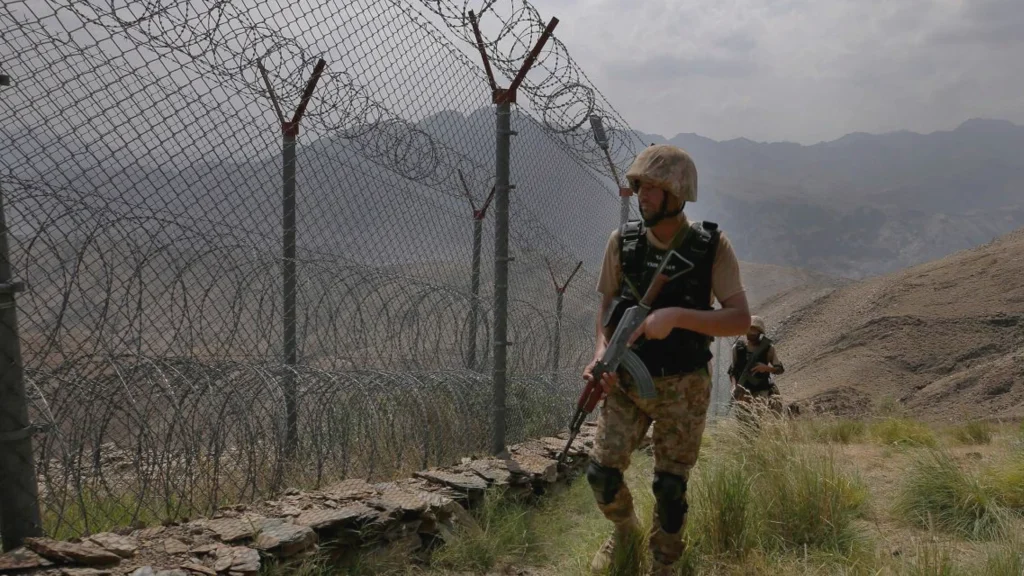The Institute of Regional Studies’ report titled Cross-Border Terrorism in Pakistan: Evidence of Afghan Infiltration within TTP Tashkeels exposes a troubling shift in Pakistan’s security landscape, revealing a deepening alliance between the Afghan Taliban regime and Tehrik-i-Taliban Pakistan (TTP). Afghan nationals now dominate the ranks of TTP infiltration groups, with over 70% of militants crossing into Pakistan from Afghan provinces between June and September 2025.
This surge, coupled with the Taliban’s documented support, ranging from financial stipends and safe havens to advanced weaponry and travel facilitation, signals a state-level endorsement of terrorism. The report highlights how Afghanistan has become an operational hub for anti-Pakistan militancy, undermining border security and regional stability. The Taliban’s duplicity, denying involvement while actively enabling TTP operations, presents a diplomatic and strategic dilemma for Pakistan. Addressing this threat requires a recalibrated security policy, international pressure, and robust border management to safeguard Pakistan’s sovereignty and counter the growing transnational militant nexus.
A New Phase of Cross-Border Militancy
The Institute of Regional Studies’ October 2025 report marks a pivotal moment in understanding the evolving nature of terrorism in Pakistan. It reveals a stark transformation in the composition and coordination of Tehrik-i-Taliban Pakistan (TTP) groups, now heavily infiltrated by Afghan nationals. This shift is not incidental, it reflects a deliberate strategy by the Taliban regime to support and sustain anti-Pakistan militancy.
The Taliban’s Strategic Complicity
The report provides compelling evidence of the Taliban’s direct involvement in facilitating terrorism. From harboring TTP leadership in Kabul to supplying advanced weaponry and issuing travel passes, the Taliban’s support is institutional and state-backed. The financial patronage, such as monthly stipends to TTP leaders and compensation to families of slain militants, further underscores the regime’s ideological and operational alignment with the TTP.
A Surge in Afghan Infiltration
Between June and September 2025, Pakistan recorded a 36% increase in infiltration groups and a 48% rise in total militants crossing from Afghanistan. The fact that 70–80% of these infiltrators were Afghan nationals marks a dramatic departure from previous years. This demographic shift signals a reconstitution of TTP as a transnational force, with Afghanistan serving as its primary staging ground.
Operational Consequences and High-Profile Attacks
The report documents multiple terror incidents involving Afghan nationals, including suicide bombings in Bannu, Chaman, and Quetta. These attacks not only demonstrate the tactical capabilities of the infiltrators but also highlight the porous nature of the border and the failure of existing surveillance mechanisms. The Taliban’s protection of over 60 TTP camps across Afghan provinces further amplifies the threat.
Diplomatic and Strategic Dilemmas
Pakistan faces a complex diplomatic challenge. The Taliban’s public denials of involvement contrast sharply with the documented evidence of support. This duplicity complicates bilateral engagement and raises questions about recognition, aid, and regional cooperation. The report rightly calls for internationalizing the issue through platforms like the UN, SCO, and FATF to press for accountability.
Policy Imperatives for Pakistan
The Institute of Regional Studies’ report outlines a comprehensive set of policy imperatives for Pakistan to counter the escalating threat of Afghan-sponsored terrorism. Key recommendations include accelerating border fencing and upgrading surveillance infrastructure to curb militant infiltration across the porous frontier. Empowering border forces with revised rules of engagement is essential to enable preemptive action against cross-border threats.
The report also stresses the need for establishing joint intelligence fusion cells to enhance real-time coordination between civil and military agencies. Tracking Taliban-linked financial streams through collaboration with international partners like FATF is vital to disrupting the funding of terrorist operations. Additionally, launching strategic communication campaigns to expose the Taliban’s duplicity can help counter their denial narrative and build international pressure. These measures go beyond tactical responses; they signal a strategic recalibration of Pakistan’s security doctrine, aimed at safeguarding national sovereignty and restoring regional stability in the face of a state-backed militant resurgence.
Global Implications and the NATO Legacy
The use of US-origin weapons by TTP operatives raises broader concerns about the aftermath of NATO’s withdrawal from Afghanistan. The unintended consequences of abandoned military stockpiles now fuel regional instability. This dimension of the report calls for global attention and responsibility, especially from Western powers that shaped Afghanistan’s post-2001 trajectory.
A Call for Strategic Clarity
The IRS report is more than a warning, it is a blueprint for action. It urges Pakistan to confront a systemic threat with urgency and resolve. The Afghan-TTP nexus is no longer a covert alliance; it is a visible, documented, and dangerous reality. Addressing it requires not just national effort but coordinated international pressure to compel the Taliban regime to dismantle its militant infrastructure.
\Also Read: Border Clashes Expose Afghanistan’s Betrayal of Pakistan’s Historical Support


